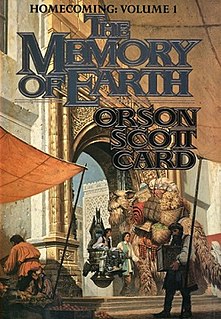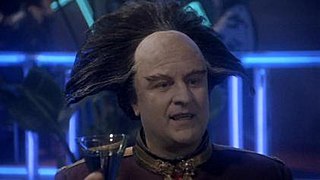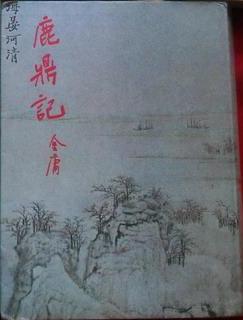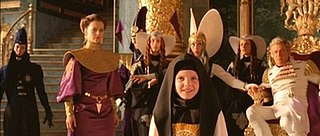
Heretics of Dune is a 1984 science fiction novel by Frank Herbert, the fifth in his Dune series of six novels. It was ranked as the No. 13 hardcover fiction best seller of 1984 by The New York Times.

The Memory of Earth (1992) is a science fiction novel by American writer Orson Scott Card. It is the first book of the Homecoming Saga, a loose fictionalization of the first few hundred years recorded in the Book of Mormon.

Constantius III was Roman emperor of the West in 421, from 8 February until his death on 2 September. He earned his position as Emperor due to his capability as a general under Honorius, achieving the rank of Magister militum by 411. That same year, he was sent to suppress the revolt of Constantine III, a Roman general who declared himself emperor. Constantius led his army to Arles in Gaul, the capital of Constantine III, and defeated Gerontius, a general rebelling against Constantine, before himself besieging Arles. After defeating a relief force led by Edobichus, Constantius convinced Constantine to surrender, promising safe retirement, but betrayed and beheaded him as soon as he surrendered. Constantius then went on to lead campaigns against various barbarian groups in Hispania and Gaul, recovering much of both for the Western Roman Empire. Constantius was proclaimed Western Roman Emperor by Honorius on 8 February 421. He reigned for seven months before dying on 2 September 421.

Petronius Maximus was Roman emperor of the West for two and a half months in 455. A wealthy senator and a prominent aristocrat, he was instrumental in the murders of the Western Roman magister militum, Aëtius, and the Western Roman emperor, Valentinian III.

Londo Mollari is a fictional character in the universe of the science fiction television series Babylon 5, played by Peter Jurasik.

The Deer and the Cauldron, also known as The Duke of Mount Deer, is a historical novel by Jin Yong, the longest of his novels and the last to be published. It was initially published in Hong Kong as a serial, running from 24 October 1969 to 23 September 1972 in the newspaper Ming Pao.

The Book of Three (1964) is a high fantasy novel by American writer Lloyd Alexander, the first of five volumes in The Chronicles of Prydain. The series follows the adventures of Taran the Assistant Pig-Keeper, a youth raised by Dallben the enchanter, as he nears manhood while helping to resist the forces of Arawn Death-Lord.

Jedi Trial is a science fiction novel by David Sherman and Dan Cragg. It is set in the Star Wars galaxy during the Clone Wars, 2.5 years after the Battle of Geonosis in Star Wars: Episode II – Attack of the Clones, and 19.5 years before the Battle of Yavin in Episode IV: A New Hope.

The Walking Drum is a novel by the American author Louis L'Amour. Unlike most of his other novels, The Walking Drum is not set in the frontier era of the American West, but rather is an historical novel set in the Middle Ages—12th-century Europe and the Middle East.

Emotional Chemistry is a BBC Books original novel written by Simon A. Forward and based on the long-running British science fiction television series Doctor Who. It features the Eighth Doctor, Fitz and Trix.
Assignment: Israel is the twenty-seventh novel in the long-running Nick Carter-Killmaster series of spy novels. Carter is a US secret agent, code-named N-3, with the rank of Killmaster. He works for AXE – a secret arm of the US intelligence services.
Barbatio was a Roman general of the infantry under the command of Constantius II. Previously he was a commander of the household troops under Gallus Caesar, but he arrested Gallus under the instruction of Constantius, thereby ensuring his promotion on the death of Claudius Silvanus. In 359, both he and his wife Assyria were arrested and beheaded for treason against Constantius, possibly as part of a plot by Arbitio, a senior cavalry commander, and another exponent of the forms of scheming and political intrigue that became such a part of the later Roman Empire.

Relic of Empire is a science fiction novel by American writer W. Michael Gear.
Tara Duncan is the heroine of the eponymous series of bestselling novels in French written by Sophie Audouin-Mamikonian.

The Left Hand of God is a fantasy novel written by Paul Hoffman and first released in 2010. It is the first book in a trilogy with the same name. The second book is The Last Four Things, published in 2011, and the third is The Beating of His Wings, published in 2013.

Multiple organizations of the Dune universe dominate the political, religious, and social arena of the fictional setting of Frank Herbert's Dune series of science fiction novels, and derivative works. Set tens of thousands of years in the future, the saga chronicles a civilization which has banned computers but has also developed advanced technology and mental and physical abilities through physical training, eugenics and the use of the drug melange. Specialized groups of individuals have aligned themselves in organizations focusing on specific abilities, technology and goals. Herbert's concepts of human evolution and technology have been analyzed and deconstructed in at least one book, The Science of Dune (2008). His originating 1965 novel Dune is popularly considered one of the greatest science fiction novels of all time, and is frequently cited as the best-selling science fiction novel in history. Dune and its five sequels by Herbert explore the complex and multilayered interactions of politics, religion, ecology and technology, among other themes.
We've a three-point civilization: the Imperial Household balanced against the Federated Great Houses of the Landsraad, and between them, the Guild with its damnable monopoly on interstellar transport.
This page is based on this
Wikipedia article Text is available under the
CC BY-SA 4.0 license; additional terms may apply.
Images, videos and audio are available under their respective licenses.













